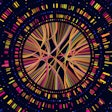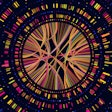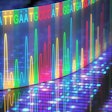
Thermo Fisher Scientific announced on January 24 that it is working with AstraZeneca as part of a global, multiyear agreement to develop a solid tissue and blood-based companion diagnostic (CDx) test for the biopharma firm’s Tagrisso (osimertinib) non-small cell lung cancer (NSCLC) treatment.
The test would identify patients with NSCLC who may be eligible for treatment with Tagrisso by identifying tumors that exhibit epidermal growth factor receptor (EGFR) alterations, including exon 21 L858R mutations, exon 19 deletions, or T790M mutations.
The CDx leverages Thermo Fisher’s Oncomine Dx Express Test on its Genexus Dx System, a fully integrated next-generation sequencing (NGS) platform, with an automated specimen-to-report workflow that provides results in 24 hours.
“As part of our ongoing partnership with AstraZeneca, today’s announcement will help bring targeted oncology treatments to more patients in need of new care options,” Garret Hampton, president of clinical NGS and oncology at Thermo Fisher Scientific, said in a statement.
NGS-based CDx testing offers the ability to detect multiple biomarkers from a single test, helping to match patients with an appropriate targeted therapy more quickly.
Thermo Fisher noted that the need for faster diagnostic turnaround times was underscored by research presented at ASCO 2022 showing that patients with advanced-stage NSCLC had better outcomes, including survival rates, when molecular testing results were available early enough to inform initial treatment decisions.
Tagrisso is approved in numerous countries and regions for the following indications: the treatment of patients with locally advanced or metastatic EGFR T790M mutation-positive NSCLC, the first-line treatment of patients with locally advanced or metastatic NSCLC whose tumors have EGFR exon 19 deletions or exon 21 (L858R) substitution mutations, and the adjuvant treatment after tumor resection in patients with NSCLC whose tumors have EGFR exon 19 deletions or exon 21 (L858R) substitution mutations.



















